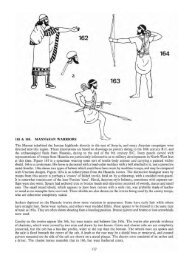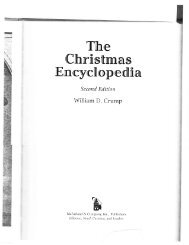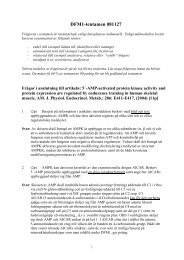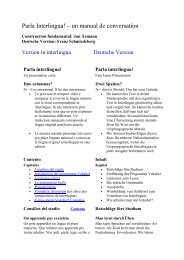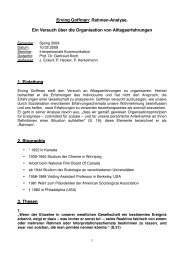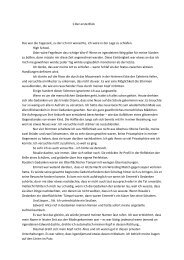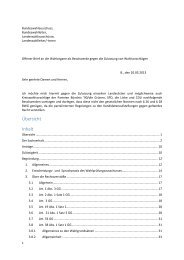lwIP - A Minimal TCP/IP implementation - Wikia
lwIP - A Minimal TCP/IP implementation - Wikia
lwIP - A Minimal TCP/IP implementation - Wikia
Create successful ePaper yourself
Turn your PDF publications into a flip-book with our unique Google optimized e-Paper software.
16 NETWORK CONNECTION FUNCTIONS<br />
}<br />
/* the connection has now been closed by the<br />
other end, so we close our end */<br />
netconn_close(conn);<br />
16.0.24 netconn write()<br />
Synopsis<br />
int netconn write(struct netconn *conn, void *data,<br />
int len, unsigned int flags)<br />
Description<br />
This function is only used for <strong>TCP</strong> connections. It puts the data pointed to by data on the output<br />
queue for the <strong>TCP</strong> connection conn. The length of the data is given by len. There is no restriction<br />
on the length of the data. This function does not require the application to explicitly allocate<br />
buffers, as this is taken care of by the stack. The flags parameter has two possible states, as<br />
shown below.<br />
#define NETCONN_NOCOPY 0x00<br />
#define NETCONN_COPY 0x01<br />
When passed the flag NETCONN_COPY the data is copied into internal buffers which is allocated<br />
for the data. This allows the data to be modified directly after the call, but is inefficient both in<br />
terms of execution time and memory usage. If the flag NETCONN_NOCOPY is used, the data is not<br />
copied but rather referenced. The data must not be modified after the call, since the data can be<br />
put on the retransmission queue for the connection, and stay there for an indeterminate amount<br />
of time. This is useful when sending data that is located in ROM and therefore is immutable.<br />
If greater control over the modifiability of the data is needed, a combination of copied and<br />
non-copied data can be used, as seen in the example below.<br />
Example This example shows the basic usage of netconn_write(). Here, the variable data is<br />
assumed to be modified later in the program, and is therefore copied into the internal buffers by<br />
passing the flag NETCONN_COPY to netconn_write(). The text variable contains a string that will<br />
not be modified and can therefore be sent using references instead of copying.<br />
int<br />
main()<br />
{<br />
struct netconn *conn;<br />
char data[10];<br />
char text[] = "Static text";<br />
int i;<br />
/* set up the connection conn */<br />
/* [...] */<br />
/* create some arbitrary data */<br />
for(i = 0; i < 10; i++)<br />
data[i] = i;<br />
netconn_write(conn, data, 10, NETCONN_COPY);<br />
netconn_write(conn, text, sizeof(text), NETCONN_NOCOPY);<br />
28





